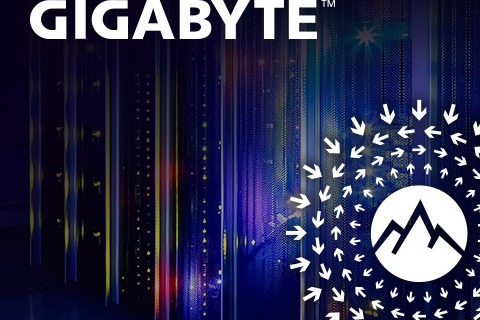
Despite the surge in mobile phone usage, and the innovative payment technologies that have come of age in mainstream usage, some consumers remain reluctant to completely embrace the latest payment technologies. In fact, it’s been found that only 52 percentof North Americans have used mobile payments; and just 18 percent usethem regularly.
Related: Why Mobile Payments Aren't Gaining Traction With Small Businesses
The reason?Mobile and the latest payment technologies are broken when it comes to security and innovation.There’s evidence to support these concerns.
ISACA is a nonprofit that works towardthe development, adoption and use of globally acceptedknowledge and practices for information systems. Last year, ISACAconducted a global survey that included 900 member cybersecurity experts to examine the biggest security risks for its 2015 Mobile Payment Security Experts . ISACA found;
Just 23 percent of the experts surveyed said theybelieved that mobile devices are secure enough to keep personal information safe. 47 percent claimed that mobile payments are not secure. An overwhelming majority87 percent anticipated an increase in mobile payment data breaches over the next year.Despite these concerns, there’s no slowing down the growth of mobile usage. It’s projected that by 2017 there will be 4.77 billion mobile phone users worldwide, so it’s imperative we resolve security concerns involving new payment technologies. Hackers are persistent and canadapttheir techniques to breach payment technologies. If you’re uptospeedon the common security concerns, at least you can have a head start on these cybercriminals.
Vulnerable payment technologiesWhether it’s your mobile device, wearable gadgetor home automation, hackers will exploit any security vulnerabilities. Don't assume the latest payment technology has figured out all of its security flaws. Keep your personal information safe by following basic security measures likehaving a strong passwordand changing itfrequently, using two-factor authentication, encrypting data, promptly installing software updates and only shopping on sites you know are safe.
Phishing attacksPhishing scams, which are scams where an email or website attempts to steal information from you, have been around for years. And, they’re probably not going away anytime soon. As previously written , phishing is still an effective attack because of human error. Even if you were were using software that blocked phishing emails, a legitimate email could still pass through. Because you believe that you’re protected, you’ll willingly open the email. In most cases using common sense can prevent phishing attacks in the first place.
Human errorThere are a number of security concerns that can be traced back to the people that youknow . Such concerns could come down toa disgruntled employee, an uninformed family memberor an employee who has had his or her personal device hacked.
Basic measures like encrypting data, training employees/family members, monitoring devicesand terminating access to employees who are no longer with you areplaces to start to prevent any human error.
Using public wi-fiTapping into public wi-fi is a nice perk when you are out and about. The problem is that public wi-firiskshackers haveaccess to your unsecureddata. To keep yourself protected, consider using a VPN and SSL connections. Don’t forget to turn off sharing and wi-fi when these services are not in use. Having a security solution wouldn’t hurt either.
Future threatsWhile some attacks like phishing have, and will continue to be, a concern, you should also keep up with the latest security threats. For example, it’s predicted that in 2016 "extortion hacks"or "ransomware"will become more commonplace. As Wired explains, these are hacks“where attackers threaten to release sensitive company or customer data if the victim doesn’t pay up or meet some other demand.”
Other potential threats include hackers changing or manipulating data, hackers figuring out chip and pin frauds, a rise in IoT botnetsand attacks going through more back doors.Staying on top of these trends and educating yourself about these trends andjoining a webinar such as "Trends in Information Security and Their Impact on You" can help thwart potential security breaches.
Even though you may be able to address any security concerns for either your business or personal accounts, companies involved with payments are also attempting to put any former security concerns to rest.
Related: The Future of Mobile Payments Awaits Your Fingerprint
Apple PayApple Pay gained a lot of traction when it was released in 2014. And, one of the highlights, besides your being able to easily make a purchase on your Apple device, is that Apple Pay is secure. In fact, Apple claims that payment transactions are only between you, the merchantand your bank. Users “must have a passcode set on your device and, optionally, Touch ID.” Furthermore, when you usepayment information, it’s encrypted to form a tokenization.
Apple put a lot of effort into making Apple Pay secure, but there have been several instances of people taking advantage of its security flaws. For example, hackers have been able to simply enter a stolen credit card number and place it into a Apple Pay Wallet. Vijay Balasubramaniyan, CEO and cofounder of Pindrop, tells PYMENTS that this is because of a “bad security design.” One way the company could address this is by using blockchain technology that would require all transactions to not only be recorded in a public ledger, but prevent double spending -- because once a coin is spent, it’s gone.
Samsung Pay If you’re not an Apple user, then you probably have a Samsung device. Samsung Pay is similar to Apple Pay in that it’s a mobile wallet for specific mobile users that works in almost every POS system. As














